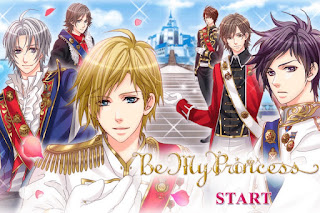Yay or Nay: The Tenant of Wildfell Hall (Novel)
I know, I know, late update. I’ve been busy. I have a stack of paper to mark, an article that I need to write, and meetings to schedule, now that I have gotten accepted into a doctoral program! Also archiving a bunch of old otome games that a developer is killing off (but that’s another angry rant that I don’t have time to deal with right now).
I have found a classic I absolutely love and enjoyed reading almost as much as Jane Eyre, Little Women, or Pride and Prejudice! This novel, The Tenant of Wildfell Hall, written by Anne Bronte, the sister of Jane Eyre’s Charlotte Bronte, should be a recognized masterpiece. I was quite sad to see that it kinda got swept under the rug. It’s a great piece of literature about abusive relationships, feminine independence, the courage of leaving an abusive relationship, and morality that I think is still rather relatable to today’s values— even if society’s rules have changed a bit since the Bronte’s time.
Told nearly (almost) in letter format, it’s prose isn’t too hard to understand, and there’s no real shortage of action or long prose paragraphs detailing every single detail (as I found with Villette, which, while interesting, was so hard to get through). So what’s the story about?
The Story
Told in the fashion of several letters and diaries of the main cast, The Tenant of Wildfell Hall tells the story of a widow and her son, Mrs. Helen Graham and Arthur, as she moves into an old mansion, Wildfell Hall. As her past is a mystery and one she refuses to divulge to anyone, she catches the attention of one Gilbert Markham, who is utterly entranced with her. As the two grow closer and Gilbert realizes he is falling in love with her, he becomes jealous of a Mr. Lawrence, who also seems to be pining for Mrs. Graham. After confronting Helen, she gives him her diary as means of an explanation, telling him to read it and then to come see her. This is where the story of the Tenant of Wildfell Hall is revealed.
My Thoughts
I found it really interesting that Anne Bronte chose to have the narrative perspective primarily be through letters, and most interestingly, through the perspective of Mr. Markham (at least until the diary part). You don’t often see (at least in my experience) a lot of male narrators with this type of novel, but it’s very welcome. I don’t know how she did it, but I really felt that this portrayal of speaking from a male’s perspective was authentic. It felt real. It felt like Anne, through her writing, embodied the male perspective of the time, especially in her interactions with Helen. It was really most welcome and actually made reading from the first page immediately engaging. Normally these novels, despite the classics they are, can be rather hard to get into due to the elaborate language unless you’re properly trained to read it in literature. That was certainly not the case here, and one reason why I’d recommend reading this from the start. The prose isn’t simple by any means, but it’s smoother and easier to follow. Anne Bronte doesn’t spend a great deal of time following the trend of other authors of the time of spending a great deal of pages including every detail or discussing every minute thing. Instead, the prose of this book is smooth, to the point, and adds just enough detail to be descriptive without being overly convoluted.
As another reason, the plot. This story surrounds Mrs. Graham’s mission of independence, and to properly rear her son up, but revolves around the root of her past— her abusive marriage to an attractive man named Mr. Huntingdon. The man is charming at first, giving her promises of love and a fairy-tale future together, but over a 5 year period that ideal fades as he is manipulative, distrustful, insecure, and unfaithful. He has a drug and alcohol problem, and openly engages in infidelity, all the while, keeping Helen (essentially) prisoner, when she seeks to be released. I found that Mr. Huntingdon, and this whole abusive past of Helen’s (of which I only scratch the surface here) is still eerily valid even today. Their relationship is the definition of toxic, and reading from Helen’s perspective, captures that feeling of powerlessness that one would feel being the victim of such a relationship. It also further justifies Mrs. Graham’s stark moral code, fear of jealous men, and paranoia of committing herself to another engagement only to be back in a similar situation. With that in mind, it also demonstrates the courage she has as a character to have escaped and brought her child with her, and her determination to be fully independent on her own, and to not have to rely on anyone else but herself. Don’t get me wrong, this is a story about an the terrors of an abusive relationship, but it also shows the courage of a woman in a time when women weren’t allowed to survive on their own, learning and planning exactly how to do just that.
My Rating
I’ll make this a short and sweet one. It’s a good book, give it a buy or a borrow! Even if you’re not a classics fan, I think you’d enjoy it!
My Rating: ⭐⭐⭐⭐⭐(5 Stars)
~Meghan



Comments
Post a Comment